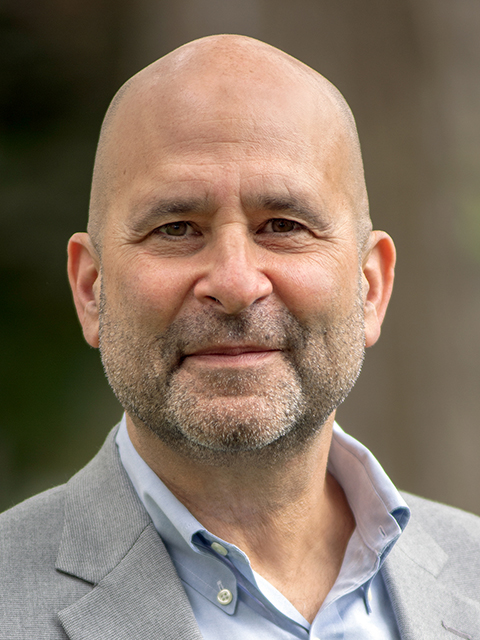Dr. Mark Lachs to Lead NYC's First Elder Abuse Center
$300,000 From Samuels Foundation to Help Coordinate Abuse Interventions

Dr. Mark Lachs
The Department of Medicine is proud to announce that Dr. Mark Lachs, Co-Chief of the Division of Geriatrics and Gerontology in the Department of Medicine, will serve as Executive Director of the new Elder Abuse Center at NewYork-Presbyterian Hospital/Weill Cornell Medical Center. The goal of the center is to improve intervention and treatment for elder abuse cases in the New York City area. The first center in the New York area to focus on coordinating elder abuse cases, the Center has received grants totaling $375,250 -- $300,000 from the Fan Fox and Leslie R. Samuels Foundation and $75,250 from the FJC, A Foundation of Philanthropic Funds -- to develop the first phase of the Center's operations. It is expected to begin operations later this year.
Each year, as many as 10 percent of older Americans are injured physically, debilitated psychologically and exploited financially, often by an adult child or other family relative.
"Elder abuse cases are increasingly complex, especially in New York City. For example, both the victim and perpetrator may have mental illness, substance abuse issues or other health conditions. Neither may speak English," says Dr. Lachs, who also serves as Director of the Center for Aging Research and Clinical Care at NewYork-Presbyterian Hospital/Weill Cornell Medical Center; and the Irene F. and I. Roy Psaty Distinguished Professor of Clinical Medicine at Weill Cornell Medical College. "We are very grateful to the Samuels Foundation and our other supporters for joining with us during these economically difficult times to address the challenges presented by complex cases of elder abuse."
The New York City Elder Abuse Center will take a case consultation approach, hosting regular meetings with clinicians, city agencies and outreach organizations to decide on the best approach for each case. A given meeting might involve representatives from adult protective services, the district attorney's office, a mental health provider and a geriatrician.

Risa Breckman, LCSW
"While there are many organizations committed to intervening in elder abuses cases, too often they haven't been effectively communicating with each other," says Risa Breckman, L.C.S.W., who will serve as Director of Cores at the new Center. She is also Director of the Institute for Psychosocial Health on Aging in the Division of Geriatrics and Gerontology at NewYork-Presbyterian Hospital/Weill Cornell Medical Center and on faculty there. "The New York City Elder Abuse Center will put all these groups at the same table so we can learn from each other and plan a coordinated response."
The Center will initially coordinate cases in Brooklyn, with expansion to the other boroughs planned. The Center's team coordinator will be based in an office at Brooklyn Adult Protective Services.
"As it matures and grows, the Center will also serve a larger role, as a training ground and central resource for technical assistance, innovative best practices, multidisciplinary training, research, and policy development in New York City and beyond," says Dr. Lachs.
Key partners for the first phase of development will include Adult Protective Services; Jewish Association for Services for the Aged (JASA); Geriatric Mental Health Alliance of New York; Kings County's District Attorney's Office, New York City Department for the Aging; New York Legal Assistance Group (NYLAG); Vera Institute of Justice, Inc.; and the Harry & Jeanette Weinberg Center for Elder Abuse Prevention at the Hebrew Home in Riverdale. All have volunteered to play an active role with the Center, contributing their specific expertise.
Planning for the Elder Abuse Center began in April 2008, with a grant from the Samuels Foundation and an anonymous donor. The team researched and adapted various models for improving elder abuse intervention, including the approach taken by the Archstone Foundation in California. The case coordination model was pioneered in the 1980s for dealing with child abuse cases.
For more information, visit www.cornellaging.com/elderabuse.
Related News
Other Elder Abuse-Related Research in the Division of Geriatrics and Gerontology
Weill Cornell has been awarded a four-year, $2.5 million grant from the National Institute on Aging to conduct the first large-scale study of verbal and physical aggression among nursing homes residents, focusing on prevalence, risk factors, and physical and psychological consequences.
Mark Lachs, M.D., co-chief of the Division of Geriatrics at Weill Cornell Medical College, and Karl Pillemer, professor of human development and Director of the Cornell Institute for Translational Research on Aging at the College of Human Ecology in Ithaca, will study residents and staff in 10 New York nursing homes. The study will look at how extensive aggression and violence among residents is, what causes it and ultimately what can be done to prevent it. The research program builds on two previous articles co-authored by Lachs, Pillemer and Tony Rosen, a Weill Cornell medical student, which found that this type of aggression is common, can result in serious consequences, and requires further study to identify risk factors and preventive measures. Please see the following article for more information: http://www.news.cornell.edu/stories/May08/nursinghome.violence.html.
Dr. Lachs is the Co-PI with NYC-Department for Aging, and partnering with Lifespan in Rochester, NY, to conduct a study of elder abuse prevalence in NYS, the first such statewide study in the nation. The project is funded, in part, through the New York State Children and Family Trust Fund, a program administered under the NYS Office of Children and Family Services.